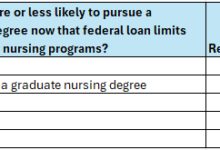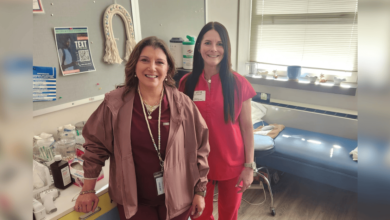First nurse appointed to lead organisation promoting burn care

Nicole Lee, matron of a burns service in London, will become the first nurse to lead the British Burn Association (BBA) in its 56-year history when she takes her post as chair next month.
The charity represents clinicians specialising in burn care and has historically been led by surgeons, though nurses make up a large proportion of the specialism’s workforce.
“I am suddenly realising what [my appointment] means to a lot of people”
Nicole Lee
A nurse with almost two decades of experience, Ms Lee said she was excited to be representing the entire burn care community, but particularly happy that she could advocate for burns nursing.
“In the history of the BBA, there has never been a nursing chair,” she said. “While there have been some fantastic nurses on the board, for whatever reason it’s just not something which has happened.
“As the first nursing chair, I took it on thinking that this was just the next step of progression – but I am suddenly realising what that means to a lot of people.
“It’s really nice to be able to put the voices of nurses forward and show that we are at the forefront of decisions [about care], which is completely different to what it was like many years ago.”
Ms Lee has spent much of her career in and around London, having previously worked in plastic surgery.
She is currently matron for the burns service at a major trust in the capital, a role she has held since November 2021, and also lead nurse for the London and South East Burn Network.
She said the workplace where she started out also had a high-dependency unit, which, combined with the plastic surgery caseload, led to her developing an interest in burn care.
Over the years, Ms Lee worked her way up to be an educator, before becoming a burns matron and assisting in the setting up and crewing of London’s Nightingale Hospitals during the Covid-19 pandemic.
The soon-to-be BBA chair said she wanted to ensure burn care does not get “forgotten about” and to be a loud voice for the specialism, ensuring burn specialists – particularly nurses – have access to educational content and get more resources for research.
She said: “Supporting people in work being able to do research is a priority, burn care is so under resourced for that, I would argue.
“Although we have absolutely improved the way we look after people in burn care over the years, we can’t get massive numbers in research.
“So, being able to push the boundaries of having different services work together, getting larger cohorts of patients, I think is key. The BBA has a massive role to play.”
Ms Lee said she would continue ongoing work that the BBA is carrying out to improve care and advocate for changes in clinical practice.
As well as being a support, research and education network for burn specialists, the BBA acts as a lobbying group to the NHS and government on behalf of clinicians around prevention and public health.
Over the years, it has been involved with prevention campaigns to raise awareness of activities and actions that risk burn injuries, and has run an annual prevention day.
Ms Lee previously backed a campaign to regulate nitrous oxide capsules, which can cause severe burns if misused for recreational purposes.
She said prevention was something she remains passionate about and will be prioritising as chair of the BBA.
The current big burn injury risk, she noted, was set-up at home electric bike (E-bike) conversion kits, which are sold without any licensing or regulations and have caused house fires, leading to high-profile serious injury cases and deaths.
She explained: “Currently, you can go on to these websites and have it delivered to your house and it doesn’t have any markings or regulations – that’s all we’re asking for, it would stop some of these injuries, and there have been some awful injuries.
“We’ve had patients who have lost their whole families because their house has gone up, it’s a huge, huge problem,” she said.
“I really want to champion the E-bike [issue]. We have previously put a very strong statement to parliament asking for regulation of buying conversion kits because that’s the biggest risk we found.
“Being able to hopefully support the government into being able to make a change for that would be massive, and would save lives without shadow of a doubt. Now we have a bit more of a stable government, it’s time to put the put the burners back on.”
Looking ahead, Ms Lee said she hoped her landmark appointment would inspire nurses in her specialism to pursue leadership positions they otherwise may have shied away from.
She added: “I’m hoping that, for junior nurses, to see a nurse make it to a chair of an association which has been completely surgical led – it’s a huge change.”






